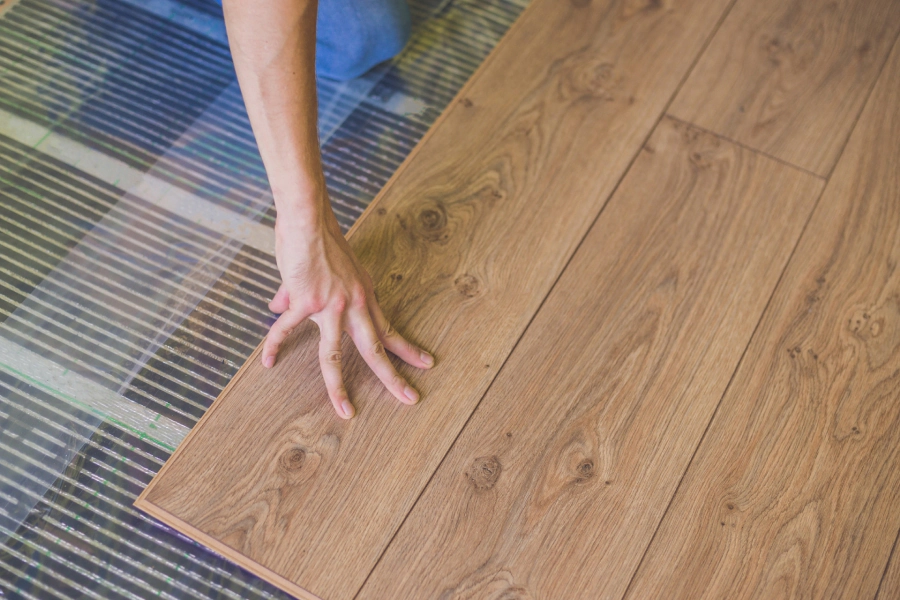
WINTER WINDS
When the barometer drops outside, you probably notice that your hands tend to feel drier more frequently. Colder temperatures mean a drop in humidity, and when there is a drop in humidity and temperature, wood contracts. In some cases, this can result in your floors appearing very dry. Dry wood is much more susceptible to cracking or breaking, since it has a lower tensile strength. Should you notice that your beautiful hardwood floor has actually begun to splinter from exposure to colder temperatures, then you know it is definitely time to call your friends at All Flortec so we can help you address the issue and maintain your flooring.
SUMMER HEAT
Here in New Jersey, humidity can become extreme during the summer months. Rising temperatures and an increase in humidity that can accompany it means more obstacles for your hardwood flooring. When humidity in your home reaches above a certain safe threshold, hardwood floors can swell, increasing in size. This swelling can produce unwanted pressure between the boards of your hardwood flooring, and in extreme cases, can result in warping of the wood. Hardwood floors that are properly installed and maintained shouldn’t experience this kind of damage, should you be encountering this sort of swelling and warping, call All Flortec and let us come assess the situation and get your floor back to looking beautiful.
PREVENTATIVE CARE
The best way to deal with hardwood flooring damage is to avoid having to deal with it in the first place! We recommend taking these precautionary steps so that you can be proactive in the care for your hardwood flooring– and even if you have the best of intentions and something goes wrong, remember that you have professional friends in the hardwood flooring business, and you can always give us a call! That said, here’s what we recommend:
Air Conditioning- Being able to control the ambient temperature in your home despite what wintery gale or summer haze is going on outdoors is vital. The safe temperature range for hardwood floors is typically between 60 and 80 degrees Fahrenheit. Any prolonged exposure to temperatures greater or less than this window can result in floor damage.
Home Humidifier- In addition to controlling the ambient temperature, if you can control the amount of moisture in your home, you will be able to prolong the lifespan of your hardwood flooring almost indefinitely. Many homes now come equipped with a whole-home humidifier system, making it that much easier to control the variables that can damage your flooring. The safe humidity zone for most hardwood floors is between 35%-55% humidity.
Humidistat or hydrometer- If your home is not equipped with a humidifier, or the humidifier you have does not have a way to display the humidity levels in your home, we recommend acquiring a humidistat or hydrometer. This helpful device can clearly tell you what the humidity level is in your home, and help you focus on problem areas where humidity may be concentrated.
It is also recommended that you use caution when choosing methods for cleaning your hardwood flooring. Never use a steam cleaner on your hardwood, since the shock in temperature and humidity can damage your flooring dramatically.
TAKEAWAYS
The most important things to remember when maintaining your hardwood flooring are very simple. Warm, humid days cause your flooring to expand and possibly warp. Cold, dry days leave your floors exposed to shrinking, drying out, and splintering. Take preventative measures like ambient air temperature controls, humidity regulation, humidity percentage tracking, and only using approved, safe methods for cleaning your flooring. If you have any questions about how your flooring may be affected by the climate, or if you need maintenance from damage that has already occurred, contact us today, and let us get started on making your hardwood flooring as beautiful as it can be!